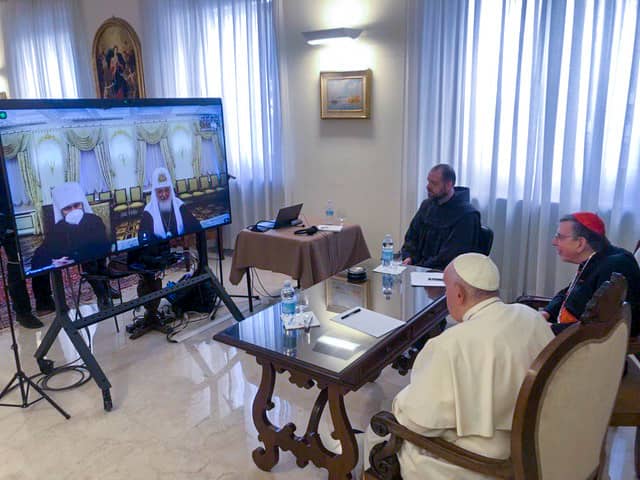ROME – Officially speaking, Catholicism regards suicide as an extremely grave sin, which is probably why the story of a Catholic bishop who reportedly killed himself in 1998 hasn’t exactly become the sort of lore Catholic parents tell their children, or that priests proclaim from the pulpit.
Still, in light of what’s happening in Pakistan right now, the story of Bishop John Joseph amounts to a grim and unfortunate, but urgently needed, wake-up call.
Joseph’s legacy comes to mind in light of what happened on Sunday, when extremists linked to the Islamic State bombed a Methodist church in northwestern Pakistan, near the border with Afghanistan, killing nine people and leaving roughly 60 injured. It was merely the latest assault on Pakistan’s Christian minority, which has seen homes burned, churches defiled, and individual members harassed and beaten more times than anyone can count in recent years.
RELATED: Catholics denounce lethal bombing of Methodist church in Pakistan
Joseph died almost twenty years ago protesting the oppression of Christians in Pakistan, and so far it doesn’t seem anyone was paying much attention.
Joseph was born in Khushpur, Pakistan, a village in the northeastern part of the country founded by a European Catholic missionary in 1901, and actually named for him. The missionary was called Father Felix, with felix being the Latin word for “happy,” and “Khushpur” in Urdu means “the land of happiness,” hence “the land of Father Felix.”
Early on things were basically happy for Joseph, who studied in a seminary in Karachi, was ordained in 1960, went on to obtain a doctorate from the Angelicum in Rome during the Second Vatican Council (1962-65), and took up life as a seminary professor. Among other things, he became a noted translator of Christian texts into Urdu, the dominant local language.
Joseph became an auxiliary bishop of Faisalabad in 1980, making him the first indigenous Pakistani bishop, and took over as the sitting bishop in 1984.
Known as the “People’s Bishop,” Joseph’s house in Faisalabad was open every Monday and Tuesday for visitors. He led marches for social justice, and famously blocked a bulldozer that was about to demolish a shantytown where Christian manual laborers lived. He went on a public hunger strike to protest religious identity cards, which he believed subjected minorities such as Christians and Shi’a Muslims to further discrimination.
Being a Christian in Pakistan was never a walk in the park. The majority of Pakistani Catholics are descendants of converts from a caste of sweepers who converted to Christianity in the 19th century, when the Punjab was under British rule. Sweepers were usually considered to be on the lowest level of society since they dealt with filth and pollution. Conversion, it was hoped, would bring change in this social status, though for many indigenous Pakistani Christians this low social standing remains unchanged to this day.
By Joseph’s time as a bishop, however, things had become markedly worse. The shock waves set off by the 1978 Iranian Revolution has emboldened Islamic radicalism around the world, including in Pakistan, where the country’s blasphemy laws were revived and strengthened in 1980 under the dictatorship of Muhammad Zia ul-Haq.
The most infamous application of those laws came in 1993, when three Christians were accused of writing defamatory graffiti on the wall of a mosque in the city of Gujranwala. They were convicted under the blasphemy laws and sentenced to death. When the three left a courthouse after a hearing, they were fired upon and one, Manzur Masih, was killed.
Joseph kissed Manzur’s Masih’s feet during his funeral Mass, and is reported to have said, “Manzur, the next blood to be shed for these laws will be mine.”
Later, Joseph would die in the same courthouse where another Christian man had recently been sentenced to death for blasphemy.
After the bishop’s body was found with a gunshot wound to his head, controversy ensued about the cause of his death. Some disputed claims of suicide based on a note left at the scene, suggesting that Joseph had actually been put to death for his outspoken criticism of the blasphemy laws.
Eventually, the bishops’ conference of Pakistan would acknowledge that Joseph died by his own hand. That finding, however, has not prevented many Pakistani Christians from regarding him as a martyr, arguing that however the end came, Joseph gave up his life in defense of those without a voice.
Arguably, Pakistan today is even more of a danger zone for Christians than in Joseph’s era. The towering symbol is Asia Bibi, an illiterate Catholic mother of five from the Punjab sentenced to death under the blasphemy laws, who has spent the last eight years in prison waiting for her fate to be determined by the country’s legal system.
Bibi, however, is merely the tip of the iceberg. Anti-Christian violence has become so frequent as to seem commonplace, such as a November 2011 incident in which a young Catholic girl was murdered for refusing the advances of a Muslim man and no charges were ever filed.
Two decades ago, Bishop John Joseph died at the age of 65 to call attention to such atrocities, most likely by taking his own life, and yet for the most part the world has turned a blind eye. If such a supreme sacrifice doesn’t get our attention, one may fairly wonder what exactly it’s going to take, and how long the embattled Christians of Pakistan will have to wait.















